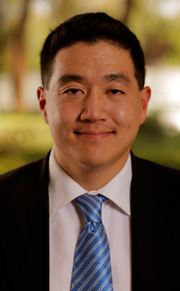A successful product strikes a balance of market needs, yet these demands change over time, especially when new technology and knowledge pushes it forward.
In the case of the insulation that keeps heat from escaping buildings, the story has been one of evolution. Pushed by health and safety standards, asbestos gave way to fiberglass in the 20th century, before the easier-to-install spray foam filled the walls. Now, there’s increasing focus on building with fire-proof insulation following the 2017 Grenfell Tower fire in London, and creating more environmentally friendly approaches of producing the staple of construction. Then there are the age-old considerations, like cost and whether it is easy to install.
While it can be tough to find all of these in existing products, new technology often emerges to satisfy all needs. That’s the case with Liatris, a Bethesda-based company. The choices now are plastic foam and mineral wool, but the former is flammable and made with petroleum-based materials, while the latter is harder to install.
By processing materials at the nanoscale, the company is addressing the issues of both.
“We are producing insulation that has the high performance of foam insulation, and the lightweight composition, but is made primarily out of inorganic materials, which do not burn,” said CEO Frank Yang, an adjunct professor at the University of Maryland College Park, adding that those materials are also low carbon.
The company recently closed on $1 million in investment to help further develop its product. The seed round was led by the Maryland Momentum Fund (MMF), which is the venture fund of the University System of Maryland, and Columbia-based Old Line Capital. It also included investors from the building materials, real estate development and energy efficiency space, including an accredited investor syndicate led by angel investment platform Propel(x).

The technology was developed by UMD Department of Chemical and Biomolecular Engineering professor Dr. Arthur Yang. As a high school student, Frank Yang, who is his son, took an interest in energy after editing grant proposals. After working in solar, he recognized opportunity to do more in buildings and energy efficiency. Now, the father and son are cofounders, with Frank Yang leading the company and Dr. Arthur Yang serving as CTO.
The company has already received recognition, and partnership. In 2019, it was selected as the top technology from more than 400 entrants in a building materials challenge from exterior wall system company Sto. As a result, it has a purchase order from the company. It also received funding through the federal government’s Small Business Innovation Research and Maryland Industrial Partnership program.
It has produced lab samples, which now need to be scaled up into pilot scale samples that can be used for test installations. The funding will help them get there. The company will be hiring new R&D and engineering employees, as well as searching for a local lab facility to accelerate product development.
Alongside developing a new product for construction, it’s also an example of a company that is eco-conscious at a time when climate scientists are issuing a code red for humanity.
“Maryland needs to be supporting more climate tech companies like Liatris,” said Claire Johnson, the managing director of MMF and a 20-year veteran of the energy industry, in a statement. “Liatris is creating non-flammable, environmentally friendly, easy to install insulation, and is doing so in a very thoughtful, measured way by developing partnerships with entities like Sto. I’m proud that the MMF is investing in Liatris and hope to see many more climate tech companies develop in and move to Maryland.”







